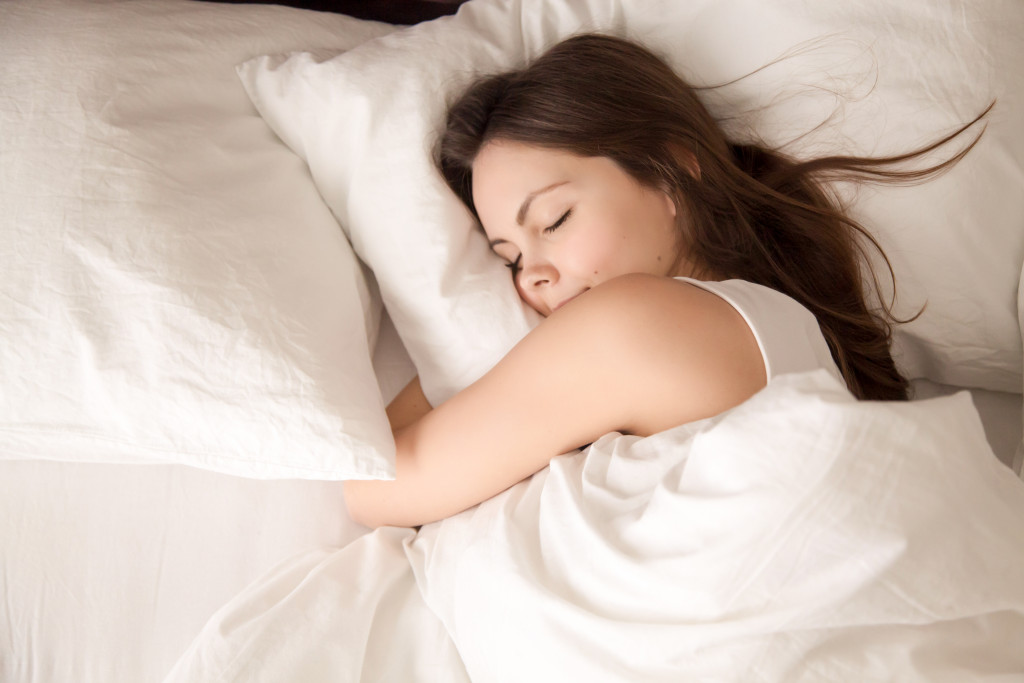Getting a good night’s sleep is more than just a luxury. For most people, a seven-hour sleep has become more elusive, especially those coping with stress or serious illnesses. But whatever you’re going through, quality sleep is just as important to our overall health and wellbeing.
Restless nights spent on tossing and turning is a common occurrence for those with insomnia and other sleep issues. This condition comes with underlying health issues such as sleep apnea, acid reflux, and chronic pain.
Even aging is another common cause of disrupted sleep because sleep patterns change as we get older. It often begins during menopause, when people often experience hot flashes or night sweats. These symptoms can keep a person awake all night, disrupting their sleeping patterns. Some even turn to cooling devices for menopause to reduce excessive sweating at night.
It’s natural to experience trouble sleeping occasionally, but if it gets more frequent, this can cause bigger problems that directly affect our physical and mental health. So if you want to get that well-deserved rest, here are three basic ways to get that good night’s sleep.
Increase light exposure during daytime
Believe it or not, exposure to bright light during the day affects our sleep quality and duration. Our bodies have a natural time-keeping clock called the circadian rhythm. It affects the brain, hormones, and body, which keeps us awake and reminds our body if it’s time for rest.
Bright light or natural light during the daytime keeps our circadian rhythm balanced and healthy. It enhances our energy during the day and the quality and amount of sleep at nighttime. This is why those with insomnia or other sleep issues should increase their daytime light exposure to have long, quality sleep.
According to a study published by the National Library of Medicine, light exposure reduces the time it takes to fall asleep by 83%. In similar research, two hours of daytime bright light exposure improves sleep efficiency by 80% and increases sleep duration by two hours.
Although these studies involve participants with chronic sleep issues, people with average sleep can also experience the same benefits through daily light exposure. A great tip is to take a daily morning walk or invest in artificial bright light bulbs.
When it’s time to sleep, use shades or heavy curtains to block light from other rooms or windows, or wear a sleep mask. Light has an opposite effect on our bodies during nighttime. Eliminating light sources will prevent the disruption of our circadian rhythm.
Keep gadgets away

Using our phones or gadgets before sleeping is something most people do. While there’s still an ongoing debate about whether using phones at bedtime affects sleep, health experts still recommend minimizing screen time before going to bed.
Exposure to natural light during daytime is beneficial, but light exposure, particularly our devices’ blue light, before bedtime has an opposite effect. Blue light refers to the powerful glare emitted by electronic devices, such as smartphones, computers, and TV. Continuous exposure to large amounts of blue light can disrupt our sleep.
The reason behind this is the concept of circadian rhythm, which tricks our brain into thinking it’s still daytime. Light exposure reduces melatonin, or the so-called sleep hormone that helps us relax and get restful sleep.
There are plenty of ways to reduce blue light exposure during bedtime. If you can’t resist using your phone before sleeping, buy eyeglasses that block blue light. You can also download an application that blocks blue light from your phone or computer. Most smartphones today have a night shield or eye care feature, which you can activate if you wish to use your phone at night. Meanwhile, those who have kids at home, make it a habit to turn off the TV before going to bed.
Get smarter with your sleep-wake cycle
As you have noticed, the role of our body’s circadian rhythm is very critical to our sleep quality. This is because syncing our body’s circadian rhythm, or natural sleep-wake cycle, helps us sleep better. Maintaining a regular sleep-wake schedule keeps us more energized and refreshed than sleeping with similar durations at different schedules. Otherwise, even simply changing your sleep schedule for a few hours affects your sleep quality.
To ensure a healthy circadian rhythm, follow a regular sleep-wake schedule. This means you have to sleep and wake up at the same time each day to establish your internal body clock and optimize sleep quality. Another technique is to limit nap times between 15 to 20 minutes during early afternoons. Also, avoid the habit of sleeping on weekends as it worsens jetlag-like symptoms.
Getting quality sleep is more than just resting. It can do wonders for our physical and mental health and reduces the chances of developing chronic diseases. If you want to achieve better health and well-being, use the techniques above to increase your chances of getting complete, restful sleep.

